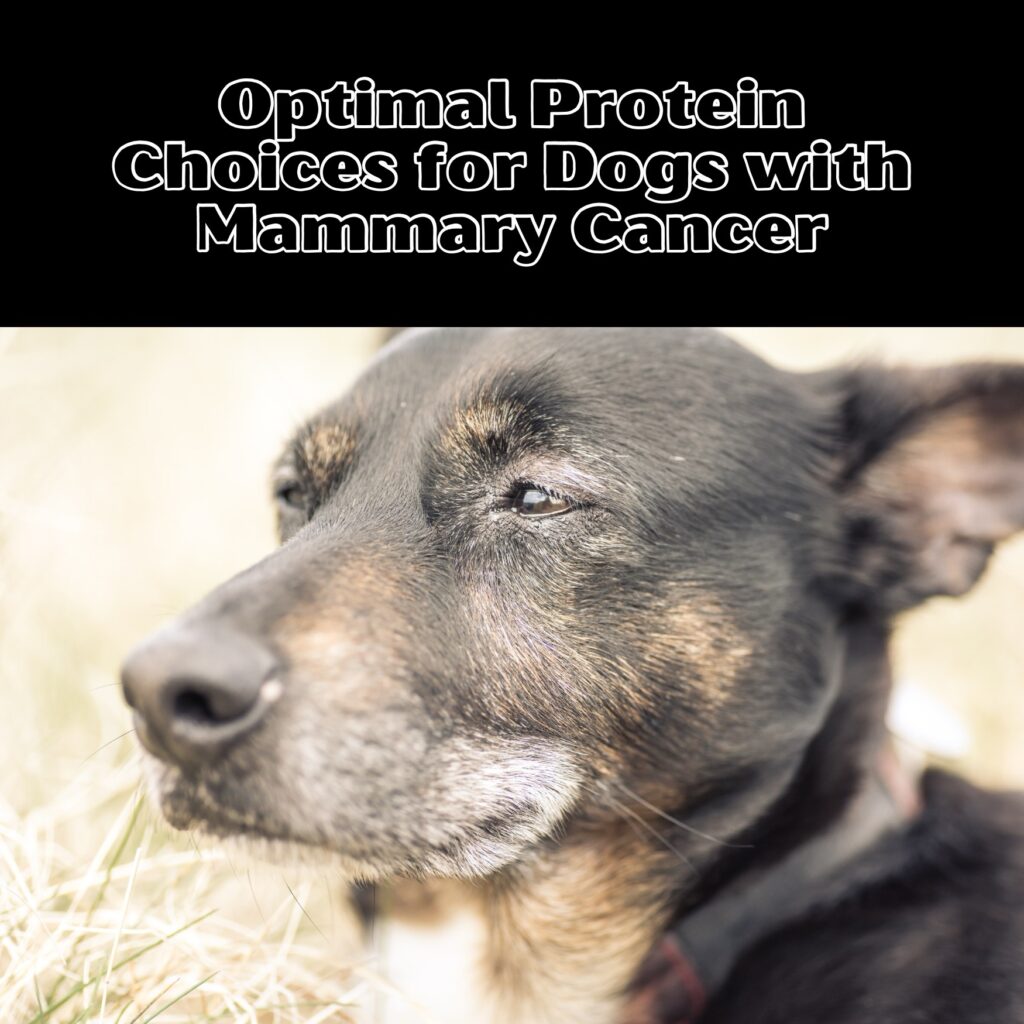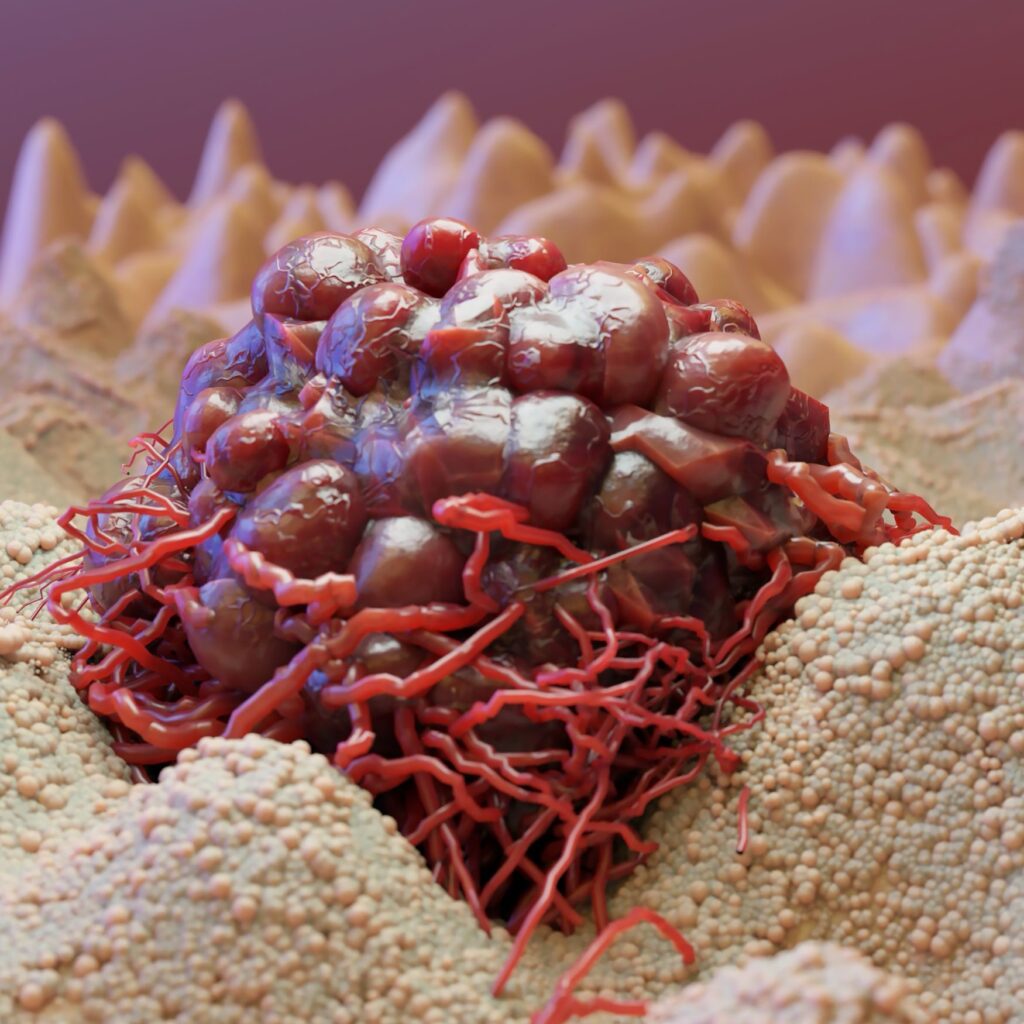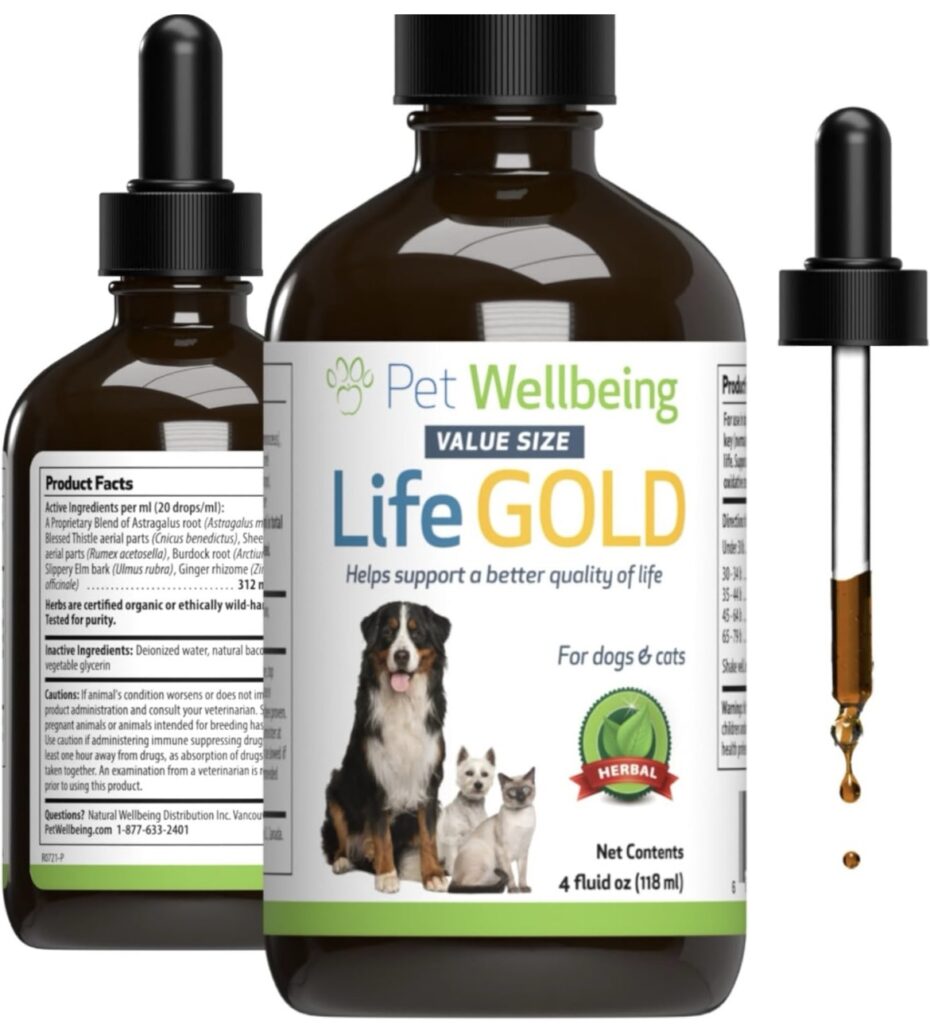When faced with the challenge of mammary cancer in our beloved canine companions, the focus often shifts to how we can support their health and vitality through every means possible.
Nutrition, particularly the proteins we choose to include in their diet, plays a pivotal role in this support system. Currently, many pet owners rely on a foundation of chicken, complemented by nutrient-rich additions like frozen primal pronto, a diverse mushroom blend, chopped broccoli, Green JuJu Just Greens, and krill oil to bolster their dog’s health. However, the question arises: what other proteins can offer similar, if not enhanced, benefits for dogs battling mammary cancer?

Understanding the critical role of diet in managing canine cancer is not just about feeding; it’s about nurturing with every bite. This guide aims to explore optimal protein choices that go beyond the usual, offering variety and targeted nutritional support for dogs with mammary cancer.
Whether you’re a seasoned pet owner or navigating this journey for the first time, this article seeks to arm you with knowledge, options, and hope, all delivered with the warmth and understanding of someone who’s walked this path. Let’s delve into the world of canine dietary support, exploring how the right proteins can make a world of difference in the life of a dog with mammary cancer.
Understanding Mammary Cancer in Dogs
Mammary cancer in dogs is a condition that requires not only the best medical intervention but also the most thoughtful nutritional strategies. As we consider expanding the dietary options for our furry friends, particularly in adding variety to their protein sources, it’s crucial to understand the context and challenges of mammary cancer. This type of cancer, prevalent in female dogs, especially those who are unspayed or were spayed later in life, emphasizes the need for a diet that supports overall health and strengthens the immune system.
In exploring additional protein options, it’s essential to balance variety with the need for easily digestible, high-quality proteins. Fish, lean meats, and certain plant-based proteins can offer this balance, providing essential nutrients without overwhelming your dog’s digestive system. However, as we introduce new foods, being mindful of potential digestive issues is crucial.
Digestive health is paramount, especially for dogs dealing with cancer. Conditions like bloating can be particularly concerning, as they can cause discomfort and further stress the body. For pet owners, understanding the causes, symptoms, and effective remedies for bloating is just as important as crafting a nutritionally rich diet. For insights into managing and preventing bloating, which can accompany dietary changes, a helpful resource is available at Bloating in Dogs: Causes, Symptoms, and Effective Remedies. This guide offers valuable information to ensure your dietary adjustments contribute positively to your dog’s health, avoiding common pitfalls such as dietary discomfort and bloating.
As we continue to explore the best dietary practices for supporting dogs with mammary cancer, keeping a close eye on their digestive health and being prepared to address issues like bloating will ensure that our nutritional support remains as beneficial as possible.

The Role of Protein in Cancer Support
Choosing the right protein sources for a dog with mammary cancer is about more than just nutrition; it’s about enhancing quality of life through diet. Protein plays a critical role in supporting a dog’s immune system, promoting tissue repair, and maintaining muscle mass, which is crucial during cancer treatment. As we expand the dietary repertoire beyond chicken to include fish, lean meats, egg whites, and even plant-based options, the goal is to provide balanced, nourishing meals that support healing and vitality.
Recommended Proteins for Dogs with Mammary Cancer
- Fish and Omega-3 Rich Proteins: Fish such as salmon and sardines are excellent protein sources that bring the added benefit of omega-3 fatty acids, known for their anti-inflammatory properties. Incorporating these into your dog’s diet can help combat inflammation associated with cancer.
- Lean Meats: Turkey, lean beef, and rabbit offer high-quality protein with lower fat content, making them ideal for maintaining lean muscle mass without adding unnecessary strain on the digestive system.
- Egg Whites: For dogs that tolerate eggs well, egg whites are an easily digestible protein source that can be a gentle addition to their diet, especially useful for those with sensitive stomachs.
- Plant-Based Proteins: While dogs are primarily carnivorous, some may benefit from the inclusion of cooked lentils or chickpeas as part of a balanced diet, offering variety and additional nutrients.
As you introduce these new proteins, monitor your dog’s response closely to ensure they’re well-tolerated and beneficial. It’s also crucial to consult with a veterinarian or a canine nutritionist to tailor the diet to your dog’s specific needs and health status.

Supporting Your Dog Beyond Diet
While nutrition plays a pivotal role in supporting a dog with cancer, showing love and providing comfort are just as important. For those looking to celebrate their furry friends or find joy in the midst of challenging times, exploring Personalized Pug Dog Gifts: Share Your Love for Canines can offer delightful ways to express your affection. Whether it’s a customized gift that captures the unique spirit of your dog or a special token that celebrates the bond you share, these personalized touches can add a layer of joy and fond memories to your journey together.

Supporting Supplements and Additions for Enhanced Health
In addition to diversifying the protein sources in your dog’s diet, incorporating specific supplements can further support their health, particularly when battling conditions such as mammary cancer. A well-chosen supplement can complement your dog’s diet by providing additional nutrients, boosting the immune system, and offering antioxidant protection to help combat the effects of cancer and its treatments.
Pet Wellbeing Life Gold for Dogs and Cats
One supplement that stands out for its comprehensive benefits is Pet Wellbeing Life Gold for Dogs and Cats. This vet-formulated supplement is designed to provide a broad spectrum of health benefits, focusing on immune support and antioxidant protection. Crafted from natural herbal ingredients, Life Gold supports the body’s innate resistance mechanisms and promotes vitality, helping pets maintain a better quality of life even in the face of health challenges.
Key Features and Benefits:
- Immune System Support: Life Gold boosts the immune system, providing your pet with additional defense against illness.
- Antioxidant Protection: The natural herbs in this supplement offer antioxidant properties that help neutralize free radicals, reducing oxidative stress and promoting healthier cells.
- Natural Ingredients: Formulated with a blend of organic herbs, including milk thistle for liver support and turmeric for its anti-inflammatory benefits, ensuring your pet receives a gentle yet effective boost to their health.
Incorporating Supplements into Your Dog’s Diet
When adding any supplement, like Pet Wellbeing Life Gold for Dogs and Cats, to your dog’s routine, it’s crucial to do so thoughtfully:
- Consult with a Vet: Always discuss new supplements with your veterinarian to ensure they’re appropriate for your dog’s specific health needs and conditions.
- Follow Dosage Instructions: Adhere to the recommended dosage guidelines to ensure your pet receives the optimal benefits without any adverse effects.
- Monitor Your Dog’s Response: Observe your dog closely after introducing the supplement, and report any changes in their condition or behavior to your vet.
While the foundation of supporting a dog with mammary cancer lies in a well-balanced, nutritious diet, supplements like Pet Wellbeing Life Gold can play a pivotal role in enhancing your pet’s overall health and quality of life. By carefully selecting and incorporating these additional supports, you can provide your furry friend with the comprehensive care they need during their cancer journey. Remember, each step you take, from dietary adjustments to supplement inclusion, is a step towards nurturing a happier, healthier life for your beloved companion.

Common Questions and Answers on Supporting Dogs with Mammary Cancer
When caring for a dog with mammary cancer, pet owners often have numerous questions about how best to support their furry friend through diet, supplements, and overall care. Here are some of the most common questions along with informative answers to help guide you through this challenging time.
How quickly should I introduce new proteins and supplements to my dog’s diet?
It’s important to introduce any new food or supplement gradually to avoid upsetting your dog’s digestive system. Start with small amounts mixed into their current food and monitor their response. If they tolerate the change well, you can slowly increase the portion size over a week or two until it becomes a regular part of their diet.
Can dietary changes and supplements cure my dog’s cancer?
While diet and supplements can significantly support your dog’s health and potentially improve their quality of life, they are not a cure for cancer. It’s crucial to follow your veterinarian’s treatment plan and view dietary adjustments and supplements, like Pet Wellbeing Life Gold for Dogs and Cats, as complementary to medical treatment, not replacements.
Are there any foods I should avoid giving my dog with mammary cancer?
Yes, certain foods might not be beneficial for dogs with cancer. Generally, it’s advisable to avoid high-sugar foods and excessively fatty foods, as they can promote inflammation or interfere with your dog’s metabolic health. Focus on lean proteins, healthy fats like those from fish oil, and nutrient-rich vegetables. Always consult with your vet for specific dietary advice tailored to your dog’s needs.
How can I tell if the new diet or supplement is helping my dog?
Look for signs of improved energy levels, appetite, and overall demeanor. While some benefits, like enhanced immune function, may not be immediately visible, positive changes in your dog’s vitality and comfort can indicate that the dietary adjustments and supplements are making a difference. Keep regular appointments with your vet to monitor your dog’s health through clinical evaluations and tests.
Is it necessary to consult a veterinarian before making dietary changes or adding supplements?
Absolutely. Consulting with a veterinarian or a veterinary nutritionist is crucial before making any changes to your dog’s diet or adding new supplements. They can provide guidance based on your dog’s specific health condition, current treatment plan, and nutritional needs, ensuring that any changes support your dog’s overall health and well-being.
Caring for a dog with mammary cancer involves a multifaceted approach that includes medical treatment, nutritional support, and plenty of love and care. By thoughtfully incorporating a variety of proteins and supplements like Pet Wellbeing Life Gold for Dogs and Cats, you can play a vital role in supporting your dog’s health during this challenging time. Remember, every dog is unique, so closely observing your pet and maintaining open communication with your veterinarian will ensure that your support is as effective and nurturing as possible.
As an Amazon Associate we earn from qualifying purchases through some links in our articles.




